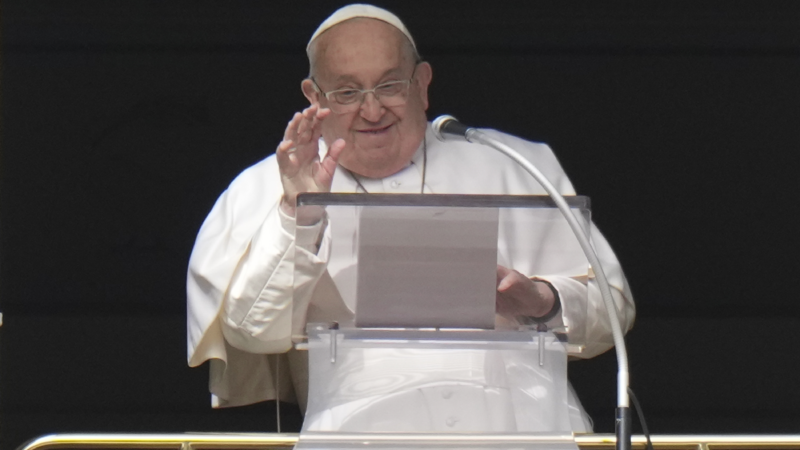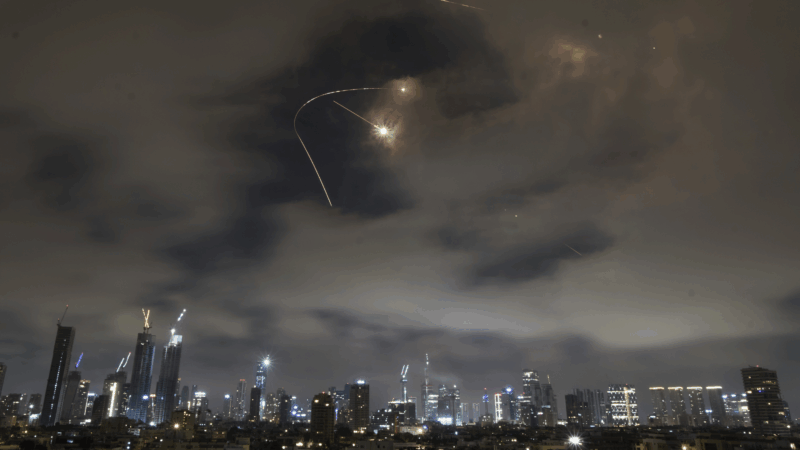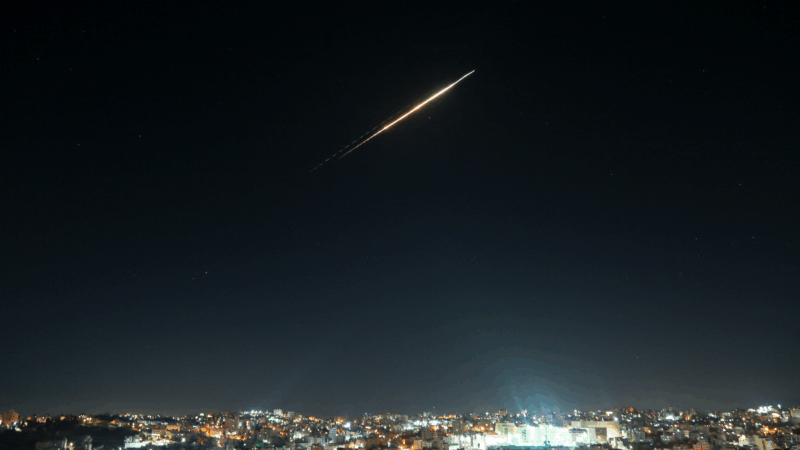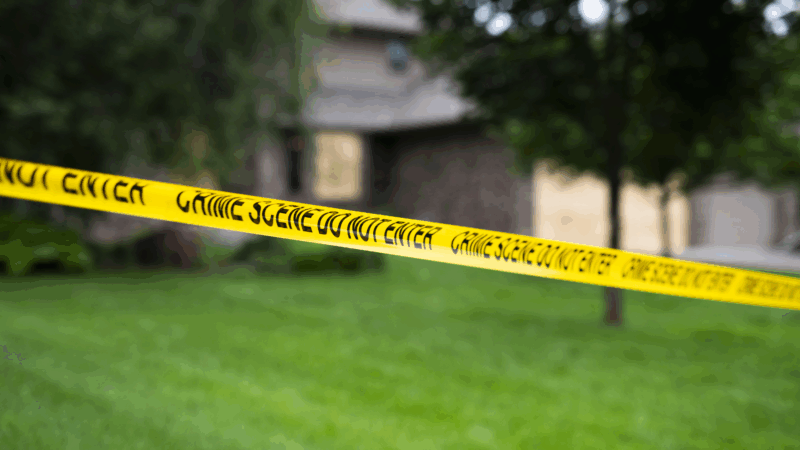Pope Francis experiences respiratory relapse
ROME, Italy—Pope Francis has experienced fresh breathing difficulties as he enters a third week of treatment in a Rome hospital, according to the Vatican press office in a statement issued Friday evening.
Earlier Friday afternoon he experienced what the Vatican called an “isolated bronchospasm crisis,” which was followed by “an episode of vomiting with inhalation and a sudden worsening of the respiratory condition.”
Friday morning the Vatican said he’d spent time doing breathing-focused physiotherapy and praying in a hospital chapel before the “bronchospasm” – a technical term for the tightening of a windpipe that can make breathing feel difficult.
His medical team reacted by placing Francis on a ventilator with a mask, and said that based on measurements of oxygen in his blood he had responded well to that treatment. “The Pope remained alert and oriented at all times,” the Vatican press office statement said, “collaborating in the therapeutic maneuvers.”
In recent days, doctors said the pontiff seemed to be stabilizing after several successive nights in which they said he slept restfully. But following Friday afternoon, the Vatican said his prognosis “remains reserved.”
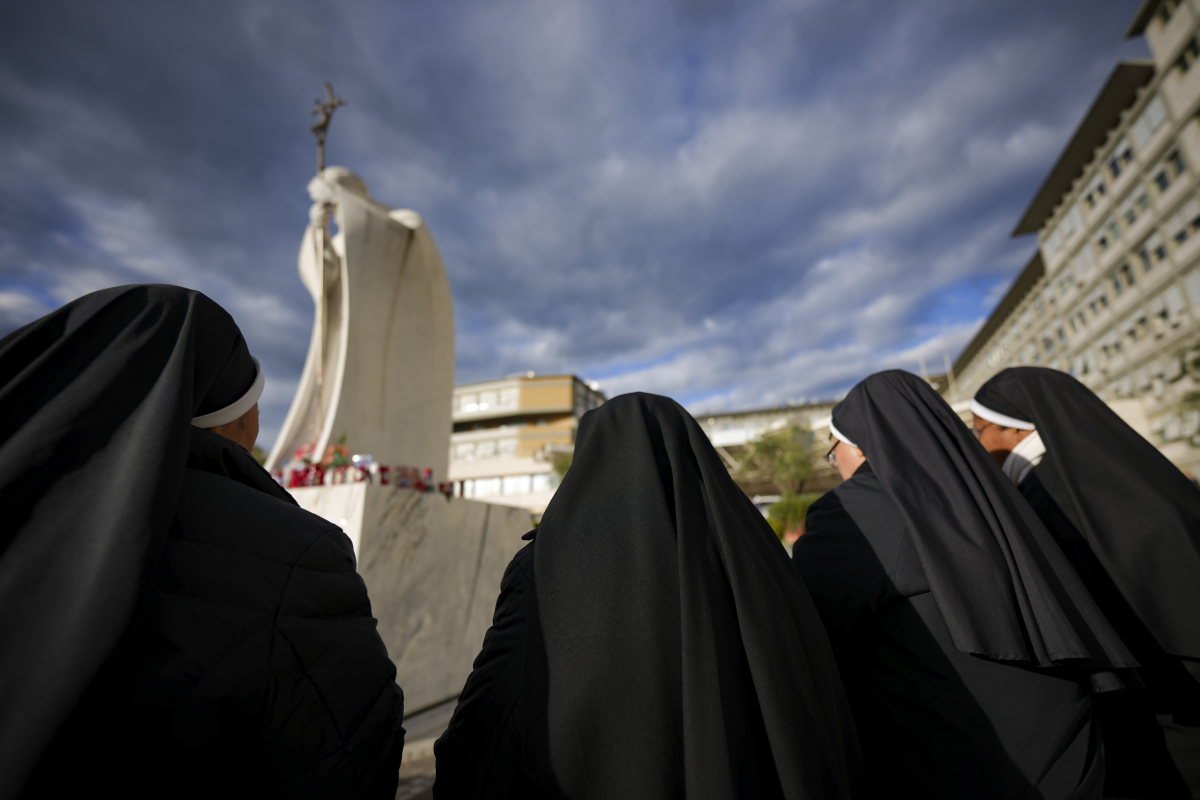
The Gemelli hospital in Rome has now housed him for almost two weeks, and doctors have continued to warn that his medical condition remains critical, in twice-daily updates have drawn the close attention of devout Catholics worldwide.Earlier in the week, his medical team shared that he underwent a CT scan to examine the extent of the pneumonia in his two lungs, but even as an in-patient Francis has continued to carry out some of his work.
Francis, 88, has remained absent from several regular appearances at the Vatican, and officials Friday said he would not be participating in Ash Wednesday celebrations next week. The church has encouraged worshippers across Rome and around the world to pray for his health, including at nightly vigils held close to St. Peter’s — a custom the Catholic Church has long practiced during previous papal illnesses.
Francis was first admitted to the hospital on Feb. 14 for a case of bronchitis, and was initially in stable condition until suffering a polymicrobial infection that forced him to remain for further treatment. Shortly after that, the Vatican announced Francis had developed pneumonia in both of his lungs, and consequently required further in-patient treatment.
Last Saturday, alongside what the Vatican called his “asthma-like respiratory crisis”, the pope was also diagnosed with thrombocytopenia, a condition characterized by a low count of the platelets in blood that help to form clots. He was given blood transfusions to help “bring up his hemoglobin levels,” the Vatican later said in a Monday morning statement.
Photos: Why it took courage for these women to pose for the camera
Wearing traditional cosmetic face masks from their homeland of Madagascar, they agreed to be photographed to take a stand.
Court blocks Louisiana law requiring schools to post Ten Commandments in classrooms
The ruling marked a win for civil liberties groups who say the mandate violates the separation of church and state, and that displays would isolate students — especially those who are not Christian.
Israel and Iran’s war enters its ninth day as talks fail to reach a breakthrough
With the war between Israel and Iran now in its second week, the two countries continued to trade missile attacks on Saturday, and Iran's foreign minister warned against a U.S. strike on Iran.
I can’t stop thinking about this plotline in ‘Materialists’
A money-obsessed NYC matchmaker is wooed by a financial investor and a cater waiter in a romantic drama that has its protagonist finding strength and emotional growth via a side character's suffering.
The math behind the war: Can Israel’s air defense keep up against Iranian attacks?
There's a specific kind of math that could determine just how much longer the war can go — how many long-range missiles Iran has versus how many missile interceptors Israel has to shoot them down.
Questions remain about the Minnesota rampage. Anti-abortion extremism may shed light
The suspect in the killing of a Minnesota lawmaker and her husband texted, "Dad went to war last night,' evoking the language of the far right, Christian anti-abortion movement.

